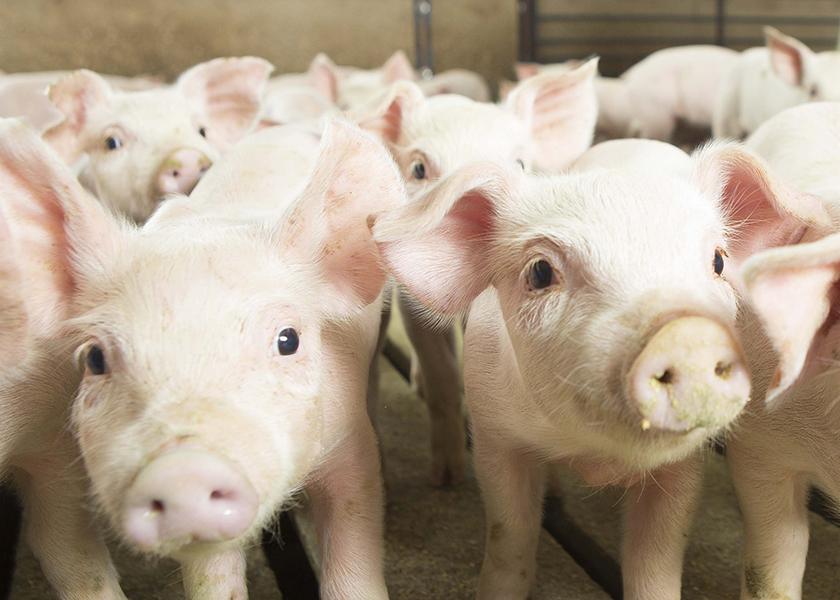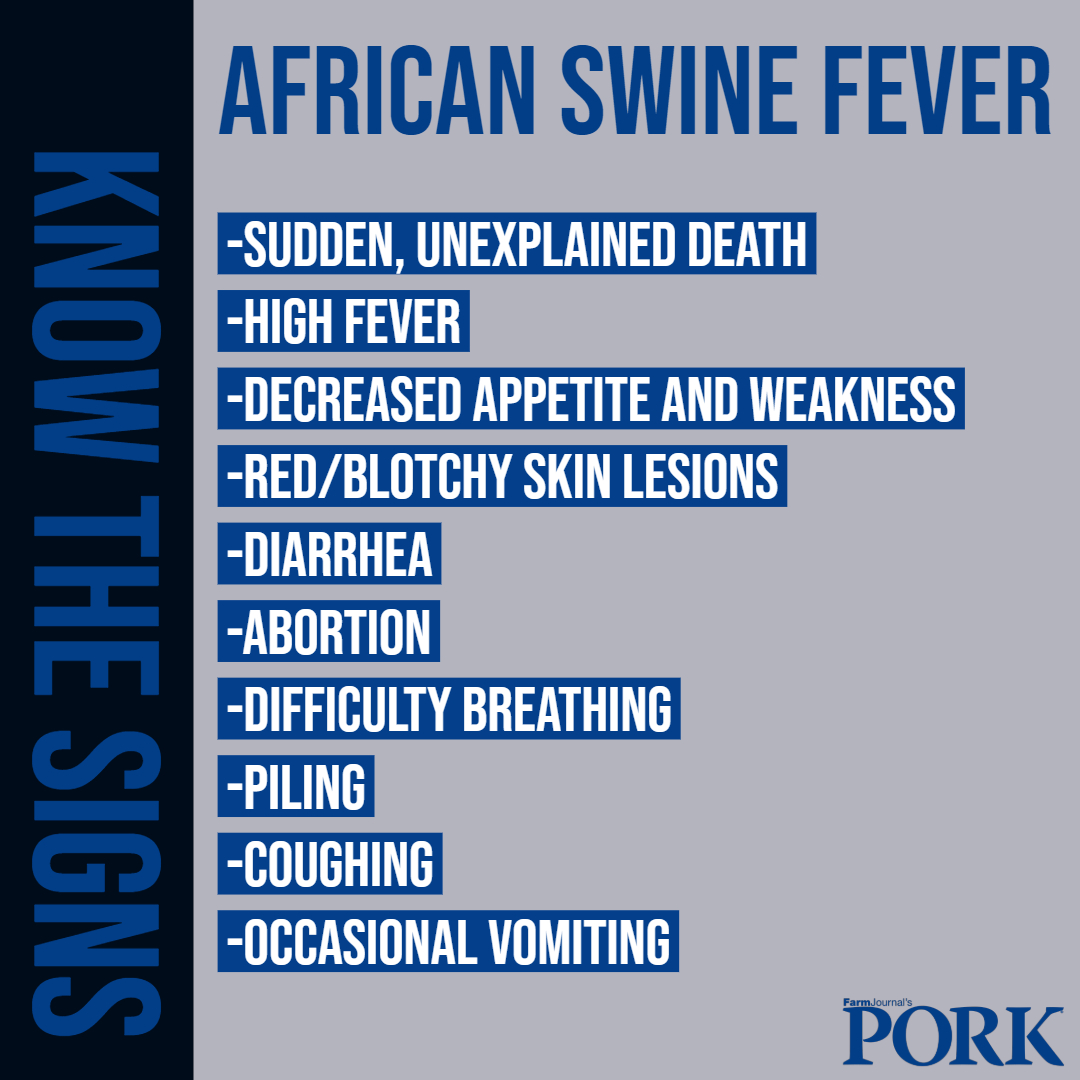Do You Know the Signs of African Swine Fever?

Do you know the signs of African swine fever (ASF)? Whether it’s China, the Dominican Republic or elsewhere, ASF doesn’t always present itself with clear symptoms. According to Patrick Webb, acting chief veterinarian for the National Pork Board, many cases of ASF appear first with just a few dead pigs and no other clinical signs that would tip you off that it was a foreign animal disease rather than a more common one such as porcine reproductive and respiratory syndrome (PRRS).
How to Spot ASF
Pigs infected with ASF may look similar to animals infected with other domestic and foreign animal diseases (FADs) such as classical hog fever (hog cholera), PRRS, porcine dermatitis and nephropathy syndrome (PDNS), erysipelas, salmonellosis, actinobacillosis, Haemophilus parasuis infection (Glasser’s disease) and pseudorabies.
When observing animals showing these clinical signs, you should suspect ASF and contact your veterinarian immediately.
-Sudden, unexplained death
-High fever
-Decreased appetite and weakness
-Red/blotchy skin lesions
-Diarrhea
-Abortion
-Difficulty breathing
-Piling
-Coughing
-Occasional vomiting

Source: Farm Journal's PORK
ASF Can Be Less Apparent
The most common strain of ASF circulating is contagious but does not appear to spread between pigs very quickly. However, Webb says it does have a high mortality rate within infected pigs.
“It’s interesting with ASF that early on in an infection you don't see a high death loss,” Webb says.
He encourages producers to work with their herd veterinarian to get a diagnosis when their pigs are sick or there is an unexplained death loss.
“As we’ve seen in other ASF outbreaks around the world in commercial farms, death loss from ASF is often below the threshold that would cause major concern,” Webb says. “However, given what’s at stake with ASF’s continued spread worldwide, producers need to take action immediately even if they think it could be a common disease such as PRRS or influenza.”
Webb recommends that producers work closely with their veterinarian to request that diagnostic samples from their herd be tested for foreign animal diseases as part of the nation’s ongoing coordinated surveillance for ASF and classical swine fever.
Be Vigilant and Report Suspect Pigs
Anyone who suspects they have sick pigs should report it immediately to their veterinarian, or to state or federal animal health officials. You can find the phone number for your state veterinarian’s office online, Webb advises.
USDA’s hotline to report foreign animal diseases is 866-536-7593. You can also call the USDA APHIS Veterinary Services National Center for Animal Health Emergency Management at 800-940-6524, which is available 24-hours a day for assistance.
To help train your team and caregivers, the Secure Pork Supply website has several resources available, including a wall chart to post.
Stay up to date on the latest ASF News.







